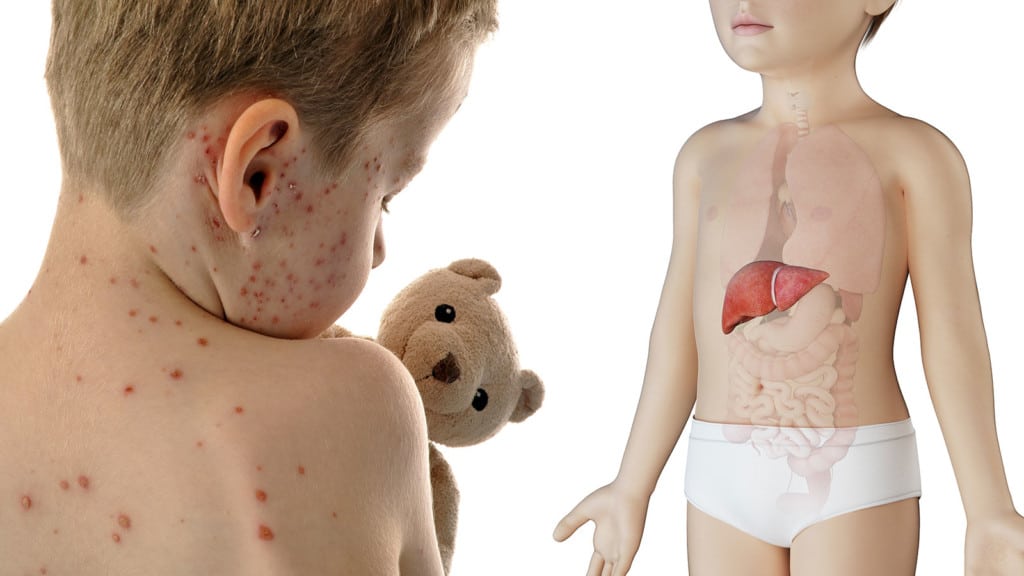Did you or your partner experience bedwetting as a child? Chances are one or more of your children will face the same challenge. While it’s to be expected for young children to wet the bed occasionally during potty training, the problem can extend into older childhood and even teen years.
Bedwetting, called enuresis, can be humiliating for older kids and frustrating for their parents. Because of the embarrassment, some teens will hide their wet sheets and pajamas in the laundry. However, a stained and smelly mattress is a tell-tale indication that your child or teen has a problem.
Did you know that at least 20 percent of kids in America have this issue? How can you help your child cope with the problem while keeping his self-esteem intact? It takes time, patience, and often medical intervention.
The adolescent years are difficult enough, let alone coping with bedwetting. Your child probably will feel uncomfortable discussing the issue, so it is up to you as a parent to intervene with empathy. If you had the same problem, then sharing your story with your kid may ease their discomfort.
Consequences of Child and Teen Enuresis
We’ve all been a kid and a teen, so we know how fragile the ego can be. Plus, kids can be quite cruel to each other. Bedwetting for an older child or teen goes beyond humiliation.
The psychological impact can be devastating for your child. He may feel ashamed of the urine-soaked sheets and pajamas and his stained mattress. Enuresis can cause isolation when your child or teen doesn’t attend overnight trips or sleepovers because he is afraid that he will wet himself during the night.
Why Do Older Children and Teens Experience Bedwetting?
Doctors aren’t exactly sure what causes enuresis, and every child is different. Your child’s pediatrician can ask questions and run tests to rule out underlying medical conditions. Enuresis can be triggered by issues that are physical, mental or both.
Is your older child waking up to urine-soaked sheets and pajamas occasionally or every night? Finding the root cause is the first step to alleviating the problem and preserving your child’s self-esteem. Here are ten common reasons why your child or teen could be wetting his bed at night.
1. It’s all in the Genes
As if your teen didn’t have enough to blame on you, bedwetting is often a genetic predisposition. So if she is coping with enuresis, you or your partner probably did, too. Enuresis is a dominant trait that seldom skips a generation, although some may be spared in sibling groups.
2. Underdeveloped Bladder
Since children often mature at different rates, it stands to reason that some may have an underdeveloped bladder. On average, doctors can calculate how many ounces a child’s bladder can hold by taking her age and adding two. For example, your nine-year-old child would be nine plus two, which would be 11 ounces.
Unfortunately, many children and teens have smaller bladders, so they are prone to wetting their beds at night. This physical condition usually corrects itself as the body matures. A pediatric urologist can tell you more about your child’s bladder.
3. Deep Sleeping
Some children are such light sleepers that the faintest bump in the night will awaken them. However, many other children and teens are such deep sleepers that hardly anything disturbs their slumber, even the need to urinate. For those with enuresis, they may sleep right through soaking through their bedclothes with urine.
Even at a young age, some children and teens may be diagnosed with obstructive sleep apnea. With this disorder, their sleep is interrupted by brief intervals of not breathing. They will often snore loudly and have urination accidents.
4. Anxiety and Loss
If you or your partner battles anxiety, your children will most likely do the same. Children with general anxiety often lack the words to describe their unknown fears and stress. Because of hormonal fluxes, teens may also experience anxiety that can cause bedwetting.
When some children and teenagers experience loss, they can have urination accidents at night. They may grieve after the death of a loved one, a friend, or a beloved pet. Divorce can also create a devastating situation for children.
Not all anxiety stems from bad experiences. Change and uncertainty are significant triggers for anxiety, especially for children. Moving, changing schools, or having a new baby sibling, is enough stress to leave your child with a urine-soaked bed in the morning.

5. Trauma
When children experience traumatic experiences, it alters the way their brains are hardwired. Those who are physically and sexually abused will usually revert to wetting the bed. Since most sexual abuse occurs at night or in the bathroom, traumatized children often fear to leave their beds to urinate at night.
Some child psychologists say that traumatized children may subconsciously use bed wetting as a defense mechanism. In their minds, they may believe that if they are wet and smell like urine, the abuser won’t touch them. Parents often report their children started wetting the bed again after others have hurt them.
6. ADHD
Has your child or teen been diagnosed with attention-deficit/hyperactivity disorder or ADHD? You are familiar with the behavior issues, but did you know it can cause enuresis? It is often one of the common symptoms that are considered when the doctor makes an ADHD diagnosis.
7. Chronic Constipation
Many children have medical issues or take certain prescriptions that cause constipation. Did you know that we use the same muscles to move the bowels and to control the bladder? When your child or teen has chronic constipation, it weakens these muscles, and enuresis can be the result.
8. Urinary Tract Infection, or UTI
It’s not unusual for a child or teen to have an occasional urinary tract infection, although it is more common for females. With a UTI, urination causes a burning sensation, and the urine has a pinkish tinge from the blood. Enuresis that results from a UTI often ceases when the infection is treated.
9. Diabetes
One of the earliest signs of Type 1 diabetes is enuresis, combined with an unquenchable thirst, weight loss, and apathy. Since diabetes negatively affects the kidneys, those with the disease also have constant urine output. If your child or teen is experiencing these signs and symptoms, consult your pediatrician as soon as possible.
10. Hormone Imbalances
Our bodies depend on hormones for most of our vital functions, including urine output. The brain creates and stores antidiuretic hormone, or ADH, to signal your urinary system to slow production at night. When children have and ADH imbalance, their kidneys don’t know when to shut off and it will often cause them to wet the bed.
 How to Help Your Child or Teen with Overcoming Bedwetting
How to Help Your Child or Teen with Overcoming Bedwetting
Don’t expect an older child or a teenager to be candid about such a complicated issue. Be there to listen and support her as much as possible, especially if you were also a young bedwetter. Gently assure your child that enuresis is common, and the pediatrician can help.
After an exam, your pediatrician will see if your child’s problem is physical. Some cases of enuresis require medication. If it is a psychological issue, therapy can be a great tool. It may be a combination that will need time to resolve.
The doctor may suggest that you limit how much your child drinks before bedtime. You should also make sure that your child goes to the bathroom right before bed. If your child is a deep sleeper, you might wake him in the middle of the night to go to the toilet and avoid an accident.
Your child needs your empathy and support, not shame or blame. Until the problem is resolved, put a water-proof cover on your child’s mattress and put extra sheets in his closet for nighttime accidents. Place a clothes hamper in his room for wet bedclothes and pajamas.
Encourage your child or teenager to go to the bathroom after an accident to wash the area and change their pajamas. Then, they should change the bed linens. If they sleep in urine-soaked bedclothes all night, it can cause painful rashes on the genitals and buttocks, like diaper rash, which could lead to infections.
Your child needn’t stay away from sleepovers or camping trips with friends. Until the issue is resolved, you can buy incontinence pull-ups that are discreet and look like regular underwear. If he has a urination accident at night, all he needs to do is change the pullups, and nobody is any the wiser.

Final Thoughts on Getting to the Root of the Bedwetting Problem
Bedwetting for older children and teenagers can frustrate them and erode their self-confidence. Consult your pediatrician if it’s a chronic problem for your child. With a doctor-recommended plan of action and you as a loving advocate, your child can have drier nights and feel better.
The post 10 Causes of Bedwetting in Older Children (and even teens) appeared first on Power of Positivity: Positive Thinking & Attitude.
【Top 10 Malaysia & Singapore Most Beautiful Girls】Have you follow?

